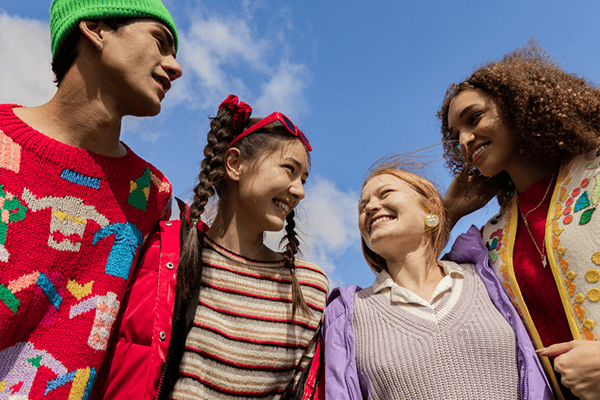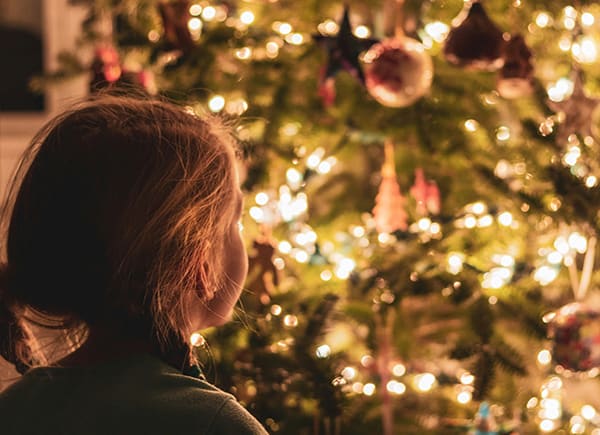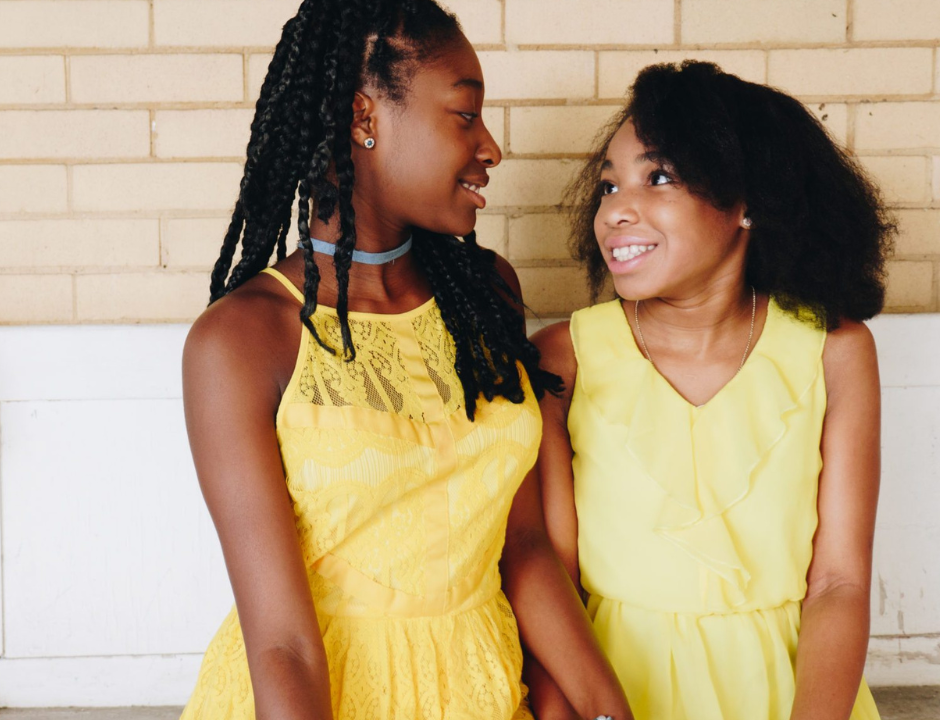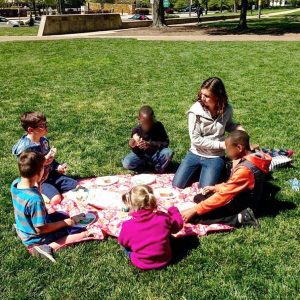
Their long sideways glances directed at me down the aisle let me know I was being watched. It put up my radar, and I casually watched back. In my peripheral, I looked up and down the late middle aged couple studying me, while at the same time still surveying the cereal boxes ahead.
“Get this one!”, my foster daughter begged, shaking a box of sugary cereal in my face. She’d been with our family long enough to know her chances were slim, and she only made a momentary pouty face when I said ‘no’ before she flippantly discarded the box on the floor. I felt relief when she returned to vying for a seat on the over-sized cart I’d selected to accommodate all five kids I had with me. We were a loud crew and I had to do some wrangling to keep things together, but overall the shopping trip was going well. A possible meltdown over cereal had just been avoided and we were holding strong.
“Some women just have no sense!”
It wasn’t said loud, but it was filled with disgust, and I knew immediately it was about me. I felt somewhat shocked in the moment. What was the nosey couple referring to? My cereal choices? Surely the woman hadn’t meant my parenting, because I had just clearly said no to the Sugar & Dye O’s! I leaned down to pick up the discarded box and my tuned-in ears heard it clearly,
“…and none of them look alike…”
I felt a cold chill go down my back. For a frozen moment, I wondered how I would respond.
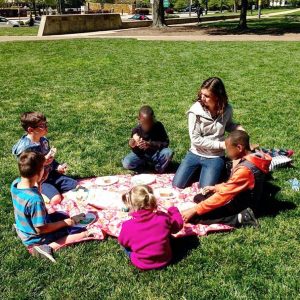
My five kids that day were a blend of foster, adopted and bio kids. And the woman was right— none of them did look alike, even the ones who were biologically related. Because of their different characteristics and skin tones, I was often asked in public if I was babysitting. People liked to point out I had my hands full, as if I didn’t already know! Sometimes people asked if the kids were adopted. The questions were always friendly. Sure, there were days I didn’t feel like explaining our family dynamic, but for the most part, it felt like an opportunity to share with others about our calling to foster care. But this was different. It was now obvious we were being watched and judged by this couple in the grocery store. The demeanor was hostile. The tone of voice was shaming. As I headed out of the aisle, I heard the word “welfare” in a sentence and knew exactly what was going on.
I felt so indignant. They had to be racists! Where did they get off, making comments on my kids’ appearance?? And couldn’t this couple tell by the way I carried myself that I wasn’t the type of woman who got herself pregnant by different guys? Couldn’t they tell by the way I was holding my crew together that I clearly took care of my children and had chosen wisely to parent this number of kids? Couldn’t they tell I was…
Better than the kind of mom they thought I was…
And suddenly, I felt so ashamed.
When people behave in a prejudiced way, it comes from pride. It’s an attempt to feel superior to others. It’s insecurity trying its very best to put on a mask of confidence. And that was exactly what was going on in my own heart— prejudice and an I’m-better-than-others attitude. I was doing the EXACT same thing the couple was— they were judging me and I was self-righteously judging other women.
To be completely honest, it was a similar attitude I had struggled having towards some biological parents. Sure, I did a pretty good job of hiding it, but it was there, hidden.
I think it’s one of the hardest things about prejudice and racism in today’s culture. It can at times be so subtle it’s easy to deny it exists. We’ve come far enough in some areas that blatant symbols or language of prejudice occur less frequently, and when they do, they often aren’t tolerated by the cultural norm.
But we haven’t come nearly far enough… people’s hearts still show it’s presence.
It comes out in attitudes, choices, and relationships. And at least in the area of South Carolina where I live, it’s not just about race either. Money, class, education, and marriage status affect the way we treat one another in my community. People tend to stay in their own circles based on their similarities in upbringing. As much as it disgusts me, I too am guilty of it too.
All people have been created with intrinsic worth. The incident with the judgy couple reminded me that’s how I want to see others. Martin Luther King famously dreamt of a day where people would “not be judged by the color of their skin, but by the content of their character.” I dream of this day too— a time where we wouldn’t judge one another by our upbringing, ring-on-the-finger, pocket book-size, past mistakes or education either.
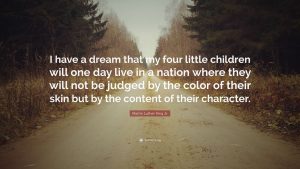
That day at the grocery store, I didn’t confront the cereal aisle couple about their stereotyping of me. I didn’t tell them they had no right to draw conclusions or speculations about my family, and that even if they had been half-way right about us, it still wouldn’t have justified their superior attitude. I did nothing, because I knew I was just as guilty that day as they were. That day in the cereal aisle, I chose to look at MYSELF and call out the disgusting attitude I had seen. I’m grateful for the lessons I have learned as a foster mom about loving others, believing the best for them, and accepting people without strings attached. But I still have a ways to go.
So that’s what I choose to confront. It starts with me.

